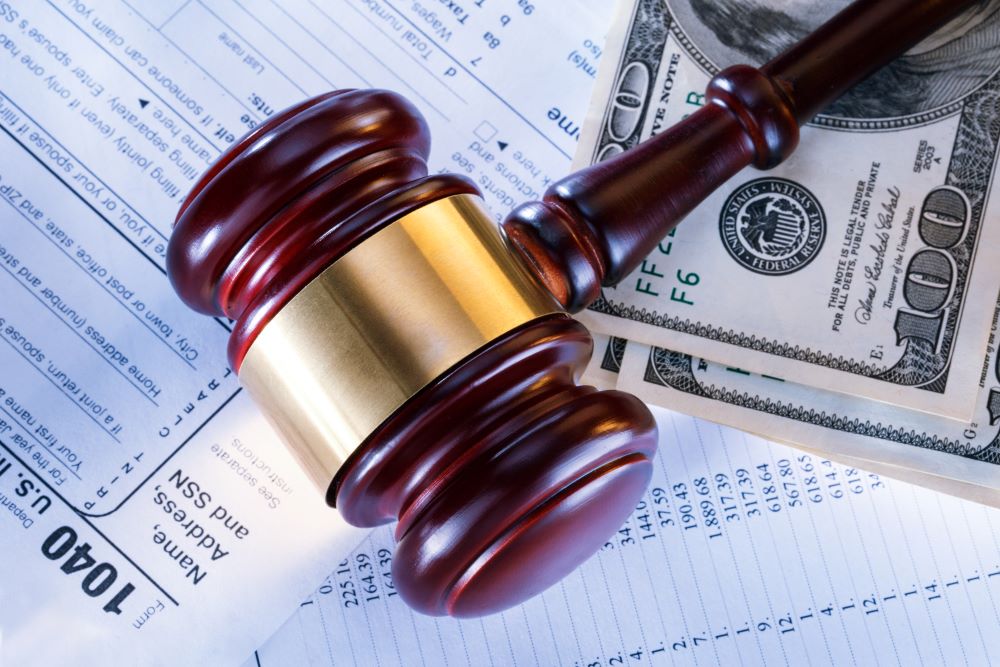As Benjamin Franklin famously said, “Nothing is certain, but death and taxes”. Indeed, paying taxes is something that none of us enjoy, but something we all must do.
At Azhari LLC, we’ve seen first hand the severe consequences that can result from tax fraud. From steep financial penalties, to time in jail, tax fraud is a very serious offense, with serious repercussions.
Today, we’re going to dive deep into what exactly constitutes tax fraud, its various forms and penalties, as well as explore some real world examples.
Remember, there are serious consequences for tax fraud. No matter your situation, it’s never too late to get help with your tax situation. Now, let’s get down to business.
What is Tax Fraud?
At its most basic, tax fraud is the willful avoidance of paying taxes. Tax fraud is most commonly committed when individuals or businesses have intentionally taken specific steps to cheat, manipulate, or avoid paying their tax liability.
Some common examples of tax fraud include:
- Underreporting income – Hiding income such as cash income or gambling winnings constitutes tax fraud.
- Faulting to file a tax return – Avoiding filing a tax return can lead to fraud charges, if done intentionally to avoid paying significant tax liabilities.
- Falsifying Deductions/Credits – Claiming deductions or credits that you do not qualify for is a form of tax fraud.
- Creating Fake Tax Shelters – Creating an abusive tax shelter that exists only to reduce the investor’s tax liability is a form of tax fraud.
Individual Tax fraud vs Business Tax Fraud
Tax fraud can be committed by both individuals as well as business entities.
Individual Tax Fraud
Individuals often commit tax fraud by failing to report side hustles such as rideshare driving, freelance work, or other side jobs apart from their primary income.
Individual tax fraud may also include things like claiming expenses that never occurred, or claiming dependents that are not legally yours or are no longer eligible to be claimed as dependents.
Business Tax Fraud
Because the range of activities conducted by businesses is so great, there are many ways in which a business may try to illegally reduce their tax liability. For instance, creating shell companies to hide income is a classic example of business tax fraud.
Business tax fraud can also be committed by creating fake invoices for services that were never rendered, or inflating the costs of services that were performed.
Likewise, disguising personal expenses such as clothing, jewelry and vacations as business expenses is another form of tax fraud.
Tax Fraud vs Tax Evasion
It’s important to take a moment to understand the difference between tax fraud and tax evasion. While both are indeed serious issues, tax evasion is a lesser crime. Here is the distinction:
Tax Evasion
Tax evasion refers to an unintentional neglect in paying your full tax obligation. Tax evasion often comes down to forgetfulness or carelessness when handling your tax return. The distinction of being unintentional is why it is considered a lesser crime.
Some common examples of tax evasion include:
- An error in calculation on your tax return that results in underpaying of taxes.
- Forgetting to report income from a side hustle such as rideshare driving.
- Not being aware of deductions or credits that cause you to pay an incorrect tax amount.
Because it is deemed unintentional, tax evasion penalties can usually be resolved by filing an amended tax return and paying the amount owed.
Tax Fraud
While tax evasion is considered unintentional, tax fraud on the other hand requires a deliberate attempt to deceive the IRS to avoid paying the correct amount of taxes owed. Tax fraud is committed willfully, with the violator fully aware of the crime being committed.
Tax fraud is more severe than tax evasion and carries far more significant penalties than tax evasion, typically requiring legal representation to handle the case.
Tax Fraud and Tax Evasion Penalties
Both tax fraud and tax evasion penalties are serious. The IRS can impose civil penalties, including fines and interest on unpaid or underreported taxes. The IRS can even seize your assets to recover unpaid taxes.
Tax fraud may also carry significant criminal penalties. The US Department of Justice is responsible for prosecuting tax fraud cases, and can impose significant penalties, including prison time, based upon the amount of taxes owed.
Can You Go to Jail for Not Filing Taxes?
It’s a common question that we are asked, and unfortunately, the answer is YES.
While failing to file a tax return itself may not lead to prison time, it inevitably will attract attention from the IRS which can open you up to investigation. And if you are found to have willfully neglected or otherwise schemed to not pay taxes, you can absolutely go to jail.
In fact, one of America’s most famous criminals, Al Capone, was ultimately convicted for tax evasion in 1931.
In today’s age, both tax fraud and tax evasion carry serious penalties, up to and including prison time.
Conclusion
The examples of personal and business tax fraud strategies are diverse, ranging from the blatant to the meticulously deliberated and concealed. However, it is never worth it in the long run. In virtually all cases, the piper must be paid.
If you are struggling with your tax obligations, personal or business related, it’s never too late to get professional help from an experienced attorney.
With nearly 15 years of experience, Azhari LLC is a highly regarded criminal lawyer, having successfully tried over 100 cases involving tax fraud, wire fraud, bank fraud, and other white collar crimes across the country.
When you choose Azhari LLC as your representation, we will fight to defend your rights and devise a strategy to gain results in your best interest.
Contact us today to schedule a consultation regarding your tax obligations, and get started on your path to a clear conscience.



